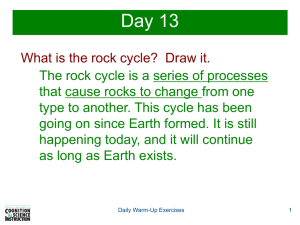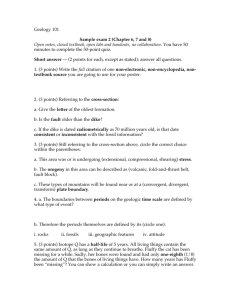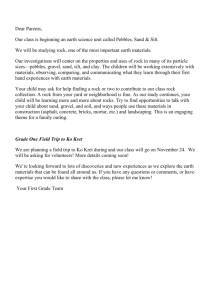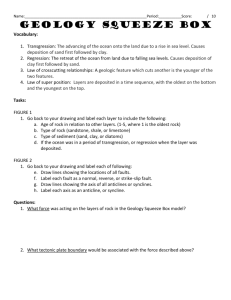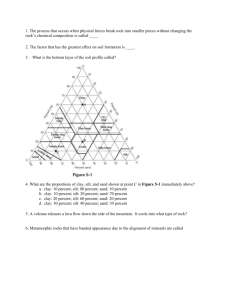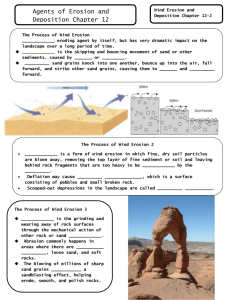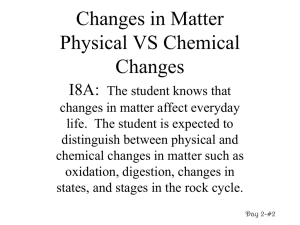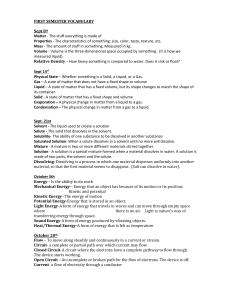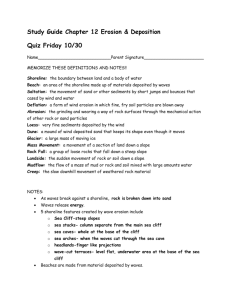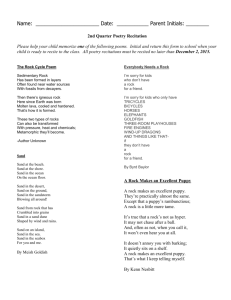PowerPoint on Vasquez Rock
advertisement
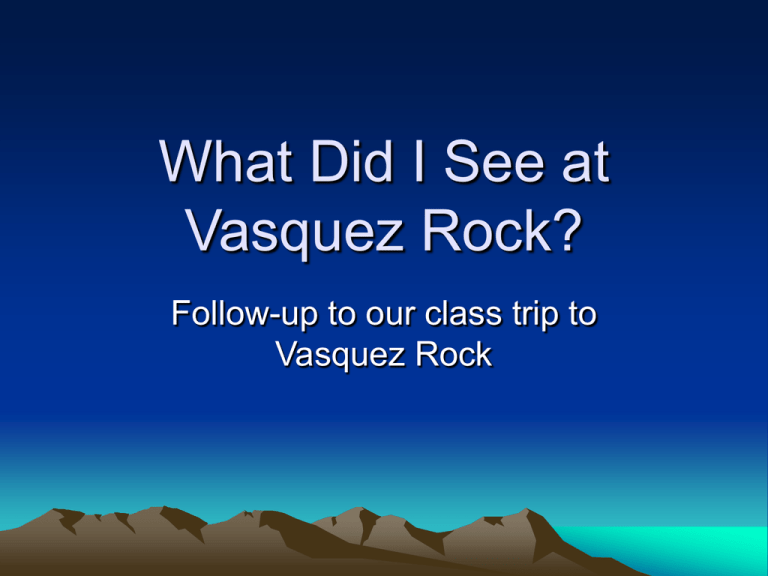
What Did I See at Vasquez Rock? Follow-up to our class trip to Vasquez Rock Desert Varnish • Surface covered by black deposits called rock varnish • Layer consist of thin layer of bacteria, clay minerals, and manganese and iron oxides • The Mn oxide (MnO2) makes black color Stop #1-2 Solution Holes (Tafoni) • Result of local wind turbulence on wet rocks • Wind evaporates water (H2O)and causes the growth of tiny salt crystals at and below the surface of the rock causing pressure on the sand grains • Sand grains loosen and form small cavities, which continue to weather from the wind causing the cavities to grow Stop #1-2 Do Plants Grow on Rocks? Stop #1-4 Juniper Bush • Bacteria and lichens first break away rock and minerals (clay and sand) • Dead bacteria provide organic matter providing nutrients for plants to grow Bedding Planes Stop #1-5 • Criteria to distinguish one bed from another: – – – – Grain size Color Resistance to weathering Grain composition • Reddish color–iron oxide • Occurs when sediments are deposited on land and are exposed to the atmosphere Displacement Stop #1-6 • Sedimentary strata form continuous layers • Cracks where there been displacement are called faults • Offsets usually produced by earthquakes • Red color is not Iron Oxide instead red paint Chemistry in Action
